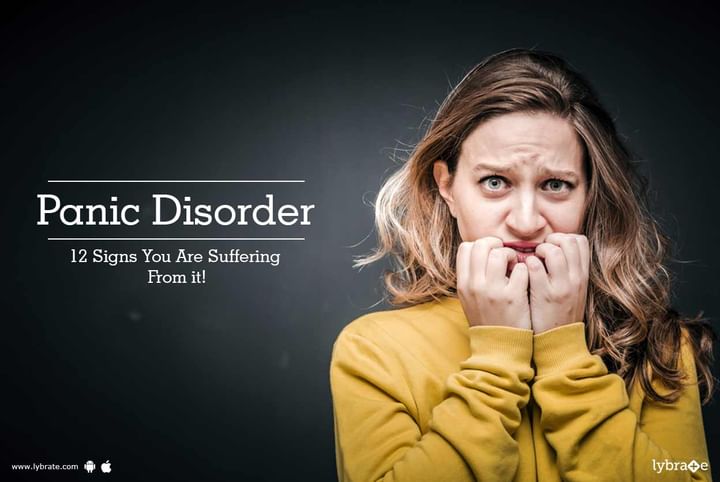Panic Disorder - 12 Signs You Are Suffering From it!
Panic disorder is a condition that strikes without reason or caution and can be serious. Indications of panic disorder usually include sudden attacks of panic and anxiety, in addition to physical side effects, such as sweating and a pounding heart. During a fit of panic, the reaction is based on the circumstances, which may not be threatening in general, but triggers a feeling of panic. After some time, a person with a panic disorder builds up a consistent fear of having another fit of anxiety, which can influence the every day functioning and lifestyle in general. Panic disorder usually occurs alongside other conditions like depression, liquor abuse, or drug abuse.
You might experience the ill effects of a panic disorder if you:
- Encounter frequent, unforeseen fits of anxiety that are not attached to a particular circumstance or event
- Stress over having another fit of anxiety
- Are trying to avoid the places of your precious panic attacks
The most common symptoms of a panic disorder are as follows:
- Trouble relaxing and feeling uneasy most of the time
- Beating heart or abdominal pain with a feeling of nervousness
- Serious irrational and emotional fear
- Feeling as if you are out of breath
- Feeling as if you are being choked or smothered
- Dizzy spells
- Trembling or shaking
- Sweating constantly
- Feeling nauseous or having a stomach ache
- Shivering or numbness in the fingers and toes
- Sudden chills or hot flashes
- A fear that you are losing control or are about to die
While a single panic attack may just last a couple of minutes, the impact of the experience can leave a long lasting impression and make you susceptible to more such attacks. In case you have this issue, the repetitive fits of panic take an emotional toll. The memory of the fear that you felt during these attacks can affect your self-confidence and cause interruption to your regular day-to-day existence. In the end, this prompts to the following panic disorder effects:
- Expectant uneasiness: Instead of feeling like yourself in the middle of panic attacks, you feel tensed and on edge. This uneasiness originates from a dread of having future attacks of anxiety. This fear is seen more often than not, and can be extremely disabling at times.
- Phobic avoidance: You start to stay away from specific circumstances or situations. This might happen since you are maintaining a strategic distance because of your previous panic attack. On the other hand, you may stay away from areas where escape would be troublesome or help would be inaccessible in case you had a fit of panic.
- Medicines: Medicines can be used to control or decrease a majority of the side effects of panic disorder. Even if medicines do not form a part of the main treatment, when combined with other treatments, medicines are very effective. Eg. therapy and lifestyle changes. If you wish to discuss about any specific problem, you can consult a psychiatrist.



+1.svg)
